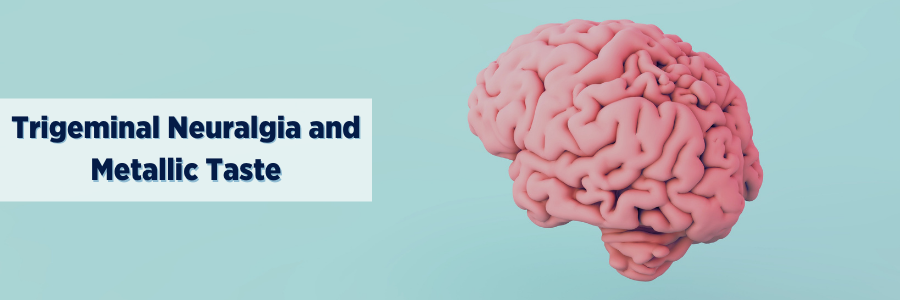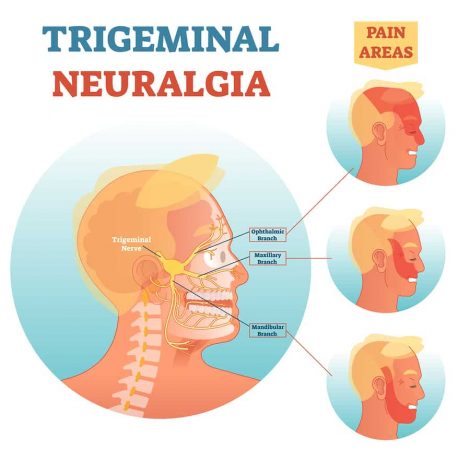

Trigeminal Neuralgia is a chronic pain disorder that is caused by the disturbance of one of the most widespread nerves in the face. It often causes extreme, unpredictable attacks of facial pain that can last anywhere from a few seconds to a few minutes. These attacks can be physically and mentally debilitating for those who experience them. If you have trigeminal neuralgia, activities as simple as brushing your teeth or shaving your face, can cause excruciating pain.
Trigeminal Neuralgia is caused by a problem between a normal blood vessel and the trigeminal nerve at the base of your brain. This contact puts pressure on the nerve and causes it to malfunction. This chronic pain can also be caused by a multiple sclerosis diagnosis, nerve compression from tumors, tangled arteries, or any type of nerve injury. Trigeminal Neuralgia occurs most often in people over the age of 50, but can be found in anyone, including infants, given that they have other pre-existing conditions. Trigeminal Neuralgia is found in 12 out of every 100,000 people each year, and is more common in women than in men.

A variety of triggers may set off the pain symptoms of Trigeminal Neuralgia. These include:
Treatment options for trigeminal neuralgia include medication, radiation, surgery, and complementary approaches. There are also options for managing trigeminal neuralgia. Some people find that low-impact exercise, yoga, creative visualization, aroma therapy, or meditation may be useful in promoting well-being. Other options include acupuncture, upper cervical chiropractic, biofeedback, vitamin therapy, and nutritional therapy.
Because Trigeminal Neuralgia is a nerve disorder, it can affect the sense of taste. Your taste buds are connected to nerves in the brain. Anything that affects these nerves can cause a metallic, sour, bitter, or bad taste in your mouth. Taste disorders are very common in people with central nervous system disorders, including Trigeminal Neuralgia. Additionally, medications, radiation, and surgery are common treatments of Trigeminal Neuralgia. These treatments are all common causes of metallic taste. Someone receiving these treatments may experience altered taste as a side effect of this treatment.
MetaQil Oral Rinse is the first-of-its kind product that alleviates metallic taste in the mouth, providing long-lasting comfort and relief.
If you are suffering from altered taste due to Trigeminal Neuralgia, a central nervous system disorders, or as a result of treatment options including medication, surgery, or radiation, MetaQil is the ONLY over the counter product specifically designed for relief of metallic taste. MetaQil gently cools the mouth and provides instant, long-lasting relief from metallic taste symptoms. It has a mild flavor and does not “sting” the mouth like an every-day mouthwash. Regular use of MetaQil can help patients return to healthy eating and adequate nutrient intake.
85% of participants in a clinical study preferred MetaQil as a remedy for metallic taste
For best results, use approximately 5 ml (one teaspoon) of MetaQil®, rinse for 30 seconds, and spit out. MetaQil can be used on an as-needed basis. Use alone or after each time you brush your teeth
Important: If you are pregnant or breastfeeding, please consult your physician before using MetaQil. Do not use MetaQil if you are taking any medications that are contraindicated with the product. Please consult with your physician if you have any concerns regarding the use of this product. Keep out of reach of children.
For more information about MetaQil, click here.